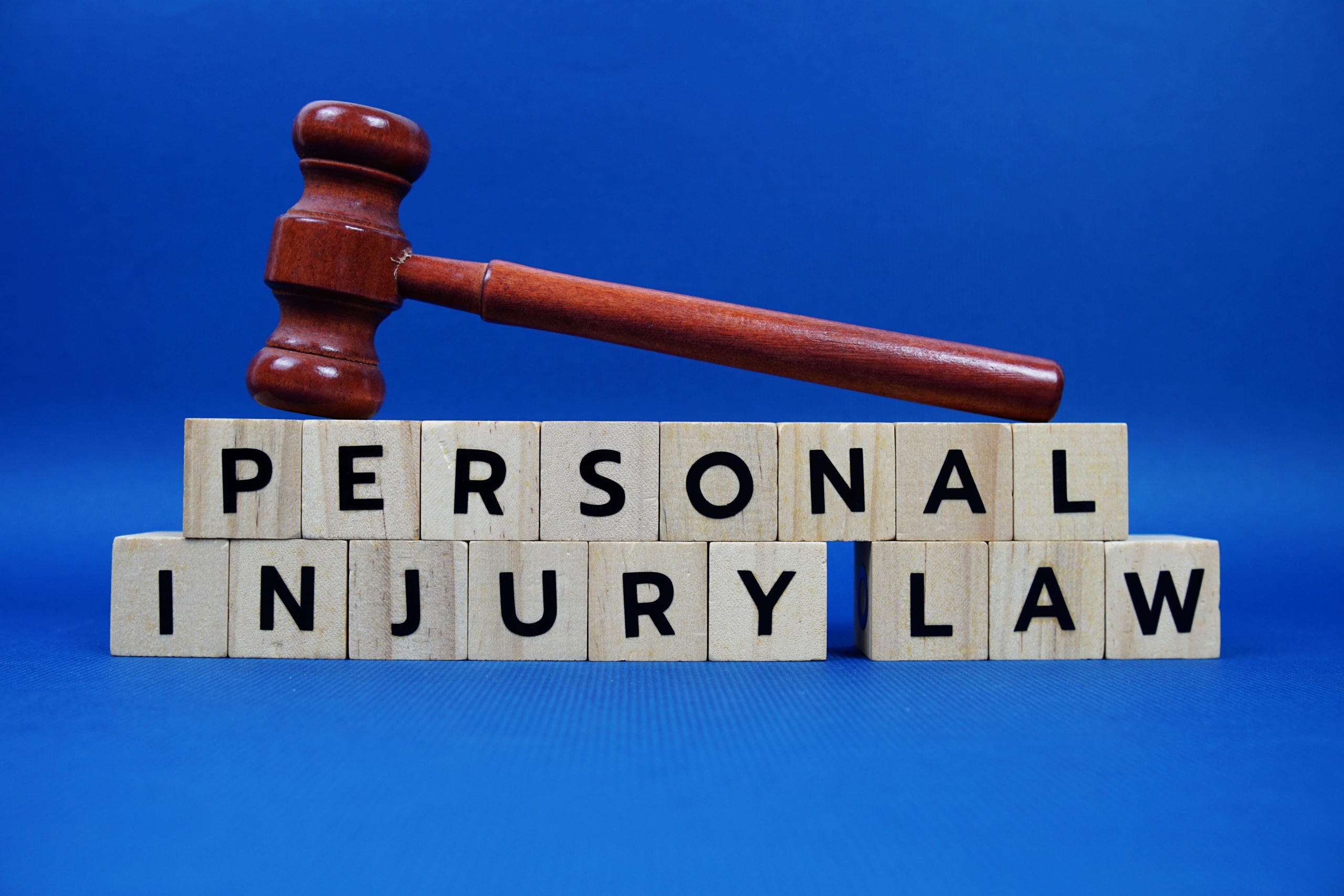Being injured in an accident can feel like you’re treading water, with the sea of injuries and medical costs threatening to swallow you up. In those situations, it’s natural to wonder whether you need a lawyer, and what a personal injury attorney does.
These questions matter more than you might think. Understanding how a personal injury lawyer can help can be the difference between sinking or swimming. This is especially true when it comes to getting medical bills paid, recovering lost income, or dealing with an uncooperative insurance company.
Understanding the Role of a Personal Injury Attorney
A personal injury attorney helps people who’ve been harmed because of someone else’s actions, or lack thereof. This includes everything from car accidents and slip-and-falls to workplace injuries and defective products.
Their main job is to protect your rights, handle complex legal matters, and fight for fair compensation. While they do that, you can focus on your top priority, getting better.
For injury victims in New Jersey and Pennsylvania, this is particularly important. These states have unique laws that can significantly impact your legal process.
If you’re unsure whether a personal injury lawyer is right for your case or you’re exploring other legal help, you may want to read more about what a general practice attorney does.
What Counts as a Personal Injury Case?
Not every accident leads to a personal injury claim. But, many do. If someone else caused you harm through their actions (or failure to act), you may have a case. This is especially true if that harm led to medical bills, missed work, or emotional distress.
Personal injury law holds people, companies, and government agencies accountable. It applies when their negligence or misconduct causes harm to others.
Most personal injury cases fall under three main categories:
- Negligence – The most common type. This means someone didn’t act with reasonable care. For example, a distracted driver running a red light or a store failing to clean up a spill.
- Strict liability – Often applies to defective products. If a faulty product injured you, the manufacturer may be responsible.
- Intentional harm – Covers deliberate acts like assault or battery.
Common Examples of Personal Injury Claims
Personal injury cases cover many different situations. Here are some common examples:
- A driver texting behind the wheel causes a rear-end collision
- A shopper slips on an unmarked wet floor in a grocery store
- A construction worker gets injured by faulty scaffolding
- A patient suffers harm from a doctor’s misdiagnosis or surgical error
- A pedestrian gets hit by a speeding car while crossing the street
- A nursing home resident experiences neglect or abuse
- A child gets bitten by an unleashed dog in a public park
- A consumer gets burned by an exploding device battery
- A warehouse employee needs a back injury attorney for a workplace accident claim
- A cyclist gets injured due to a poorly maintained city road
In New Jersey and Pennsylvania, specific state laws may affect your claim. For instance, Pennsylvania’s “limited tort” rule may limit your ability to sue for non-economic damages after a car accident. You must have suffered a serious injury for that.
In New Jersey, strict liability may apply to dog bites regardless of the animal’s past behavior. Workplace injuries in both states are usually handled through workers’ compensation systems, though that depends on how the accident happened, like an electrical shock at work.
If you’ve experienced any of these situations, a personal injury attorney can help. They’ll explain your rights and if you’re entitled to any compensation.
When Do You Actually Need a Personal Injury Attorney?
Some minor accidents can be handled without a lawyer. This is particularly true if there are no injuries and the insurance company cooperates. But, when things get complicated, a personal injury attorney makes a big difference.
Here are clear signs it’s time to speak with a lawyer:
- Your injuries are serious, long-term, or permanent
- You’ve missed work or lost income due to the accident
- You’re facing large medical bills or ongoing treatment
- An insurance company is delaying, denying, or undervaluing your claim
- You were injured on the job, and your workers’ compensation claim is being disputed
- Many parties are involved, like in a multi-car crash or one involving commercial vehicles
- A loved one was killed due to someone else’s negligence
Many personal injury lawyers offer free consultations. Even if you’re unsure, you can discuss your situation at no cost. That conversation alone can help you understand whether you have a case.
In New Jersey and Pennsylvania, the stakes can be especially high. Both states have legal rules that impact your ability to file a claim. For example:
- Pennsylvania’s limited tort auto insurance may restrict your right to sue. You must meet the threshold for a serious injury.
- In New Jersey, you may face restrictions based on the level of insurance coverage the at-fault driver has.
- Both states have tricky workers’ compensation laws. This is especially true if your employer or their insurer challenges your claim.
Even straightforward cases can become complicated at the drop of a hat. Insurance adjusters, deadlines, and medical records add layers of complexity. An attorney helps level the playing field and protects you during a vulnerable time.
Daily Responsibilities of a Personal Injury Attorney
Most people picture lawyers in courtrooms making dramatic closing arguments. In reality, personal injury attorneys spend much more time working behind the scenes. They build your case, negotiate with insurance companies, and handle every legal detail.
Here’s what personal injury attorneys actually do from the moment you call:
Case Evaluation and Consultation
It usually starts with a free consultation. The attorney listens to your story and reviews any documents or evidence you have. Then they give you an honest assessment of your legal options.
They’ll explain whether you have a strong case. They’ll also discuss what kind of compensation you might receive.
For instance, someone who slips in a grocery store parking lot might assume the injury is minor. They might accept a low insurance offer. But, after speaking with an attorney, they may learn that what seemed like a bruise is actually a torn ligament requiring surgery. That deserves much more compensation than the original offer.
Investigating the Claim
Once you agree to move forward, the attorney begins a thorough investigation. This might include:
- Reviewing accident reports and medical records
- Interviewing witnesses
- Visiting the scene of the incident
- Consulting with experts, like accident reconstruction specialists or doctors
- Collecting photos, videos, and other physical evidence
All this helps establish fault and prove the full extent of your injuries. Picture a construction worker in Pennsylvania injured when scaffolding collapses. His attorney calls in an engineering expert, who confirms that a third-party contractor ignored safety regulations. That evidence played a huge role in recovering compensation beyond workers’ comp.
Understanding how certain types of injuries are proven is also important. For example, how a TBI lawyer proves your case often involves in-depth medical documentation and expert testimony.
Handling Insurance Communications
Dealing with insurance adjusters can be frustrating and risky. They may pressure you to settle or say things that downplay your injuries. Your attorney takes over all communication with insurers to protect you and avoid missteps that could hurt your case.
They’ll handle the paperwork, submit claims, respond to requests, and negotiate for a fair settlement. If the insurer won’t cooperate, your lawyer is ready to take the next step.
Filing Legal Documents and Managing Deadlines
If a settlement can’t be reached, your attorney may file a lawsuit. This involves drafting legal complaints, motions, discovery requests, and other required court documents. They also track critical deadlines, like the statute of limitations, to make sure your case isn’t dismissed.
Negotiation and Settlement
Most personal injury cases are resolved through settlement, not trial. Your attorney uses evidence, legal strategy, and negotiation skills to push for the most compensation. They’ll keep you informed throughout the process and help you decide whether to accept an offer or keep fighting.
If your case results in a court judgment or settlement, you may wonder what happens after you win a lawsuit. In most cases, your attorney will handle the final steps, such as collecting the judgment, negotiating liens, and distributing funds.
Representing You in Court (If Needed)
If the case does go to trial, your lawyer represents you every step of the way. That includes selecting a jury, presenting evidence, examining witnesses, and making arguments to the judge or jury. They’ll explain what to expect, prepare you to testify, and advocate for you in court.
While trials are rare, having a lawyer who’s prepared to go to court can actually improve your chances of a strong settlement.
How Personal Injury Attorneys Get Paid
One of the most common reasons people hesitate to call a lawyer is fear of high legal fees. Fortunately, most personal injury attorneys don’t charge by the hour, nor do they ask for payment upfront. Instead, they work on a contingency fee basis.
This means the attorney only gets paid if they win your case. Their fee is a percentage of the compensation they recover for you, usually around one-third of the total settlement or court award. If you don’t win, you don’t owe any attorney’s fees.
This setup allows anyone to pursue a valid injury claim, regardless of their income level. There’s no risk of going into debt. It also motivates your attorney to fight for the highest possible compensation, since their payment depends on your outcome.
There may still be some extra costs involved. These might include court filing fees, expert witness fees, or costs to get medical records. The attorney often covers these during the case and subtracts them from the settlement at the end. Be sure to ask how these costs are handled during your consultation.
For someone facing time off work, growing medical bills, or long-term treatment, knowing you can get legal help without upfront payment can make all the difference.
Types of Personal Injury Cases in NJ & PA
Personal injury law covers a wide range of accidents and incidents. In New Jersey and Pennsylvania, attorneys handle many types of claims. Each has its own legal rules, time limits, and strategies for recovering compensation.
Here are some of the most common types of personal injury cases in both states:
Car Accidents
These are among the most frequent personal injury claims. Whether it’s a rear-end collision, highway crash, or pedestrian injury, car accidents often involve insurance disputes and complex fault issues.
Pennsylvania’s “limited tort” rule can restrict your right to sue unless your injuries meet a certain threshold. In New Jersey, drivers may be limited by their “verbal threshold” election, which can also impact their ability to file a lawsuit for pain and suffering.
Slip and Fall Accidents
Residential and commercial property owners must keep their premises reasonably safe. If you’re hurt because of a wet floor, poor lighting, broken steps, or icy walkways, you may be able to hold the property owner liable through a premises liability claim.
Workplace Injuries
If you’re injured on the job in either state, workers’ compensation usually covers your medical bills and lost wages. But, if a third party, like a contractor or equipment manufacturer, was responsible for your injury, you may be able to file a separate personal injury claim for more damages.
Dog Bites
New Jersey imposes strict liability on dog owners. This means they can be held responsible even if the dog never showed aggression before.
Pennsylvania law allows victims to recover damages, especially in cases where the dog had a history of biting. It also applies when the owner was negligent in restraining their pet.
Medical Malpractice
When a doctor, nurse, or hospital makes a serious error, it can lead to lasting harm. Malpractice cases need expert testimony and are subject to unique rules in both NJ and PA. This includes strict deadlines and specific procedural steps.
Defective Products
If a faulty product injures you, like a malfunctioning airbag or defective power tool, you may have a product liability claim. This can be against the manufacturer, distributor, or retailer.
These cases are usually based on strict liability. This means you don’t need to prove negligence to win.
Wrongful Death
When someone’s life is lost due to another’s negligence or misconduct, surviving family members may be able to recover compensation. This includes funeral expenses, lost income, emotional loss, and more. New Jersey and Pennsylvania both allow wrongful death lawsuits under specific conditions.
These examples are just the beginning. Whether you were injured in a traffic accident, hurt by a defective product, or harmed due to unsafe property, a personal injury attorney can help you understand your options and fight for what you’re owed.
What Compensation Can You Receive?
If you’ve been injured due to someone else’s negligence or wrongdoing, the law allows you to seek damages. The goal is to help you recover what you’ve lost, both physically and financially.
The exact amount you may be entitled to depends on the specifics of your case. But, most personal injury claims include a mix of the following:
Economic Damages
These cover the direct financial costs of your injury, including:
- Medical bills (emergency care, surgeries, physical therapy, follow-ups)
- Future medical expenses if ongoing treatment is needed
- Lost income from missed work
- Reduced earning capacity if your ability to work has changed
- Property damage (like repairs to a vehicle after a car crash)
- Out-of-pocket costs related to your recovery (such as travel or home care)
Non-Economic Damages
These compensate you for the harder-to-measure losses. These are things that don’t come with a receipt but have a real impact on your life:
- Pain and suffering
- Emotional distress
- Anxiety or depression caused by the accident
- Loss of enjoyment of life
- Loss of companionship or support (in wrongful death cases)
Punitive Damages
In rare cases where the at-fault party acted with extreme recklessness or intentional harm, the court may award punitive damages. These are not meant to compensate you. Rather, they punish the wrongdoer and discourage similar behavior in the future.
In New Jersey and Pennsylvania, courts generally don’t cap the amount of compensation you can recover in personal injury cases. But, there are some limits in medical malpractice or claims against public entities.
No two cases are alike. Even injuries that seem minor at first can turn out to have lasting effects. A personal injury attorney can help calculate the full value of your claim using medical records, expert evaluations, and the long-term impact on your life.
Know Your Rights, Protect Your Future
Personal injury attorneys do more than file paperwork. They stand up for people during some of the most difficult moments of their lives. They handle the stress, level the playing field, and fight to ensure you get what you’re owed.
Whether you’ve been injured in an accident, hurt on the job, or lost a loved one because of someone else’s mistake, it’s worth having a conversation with a lawyer. Most offer free consultations, and you only pay if you win.
If you’re wondering whether you need legal help, talking to a personal injury attorney can help you understand your options at no cost.
Resources:
https://nj.gov/labor/workerscompensation/assets/PDFs/Forms/wc_law.pdf
https://consumer.ftc.gov/articles/hiring-lawyer




